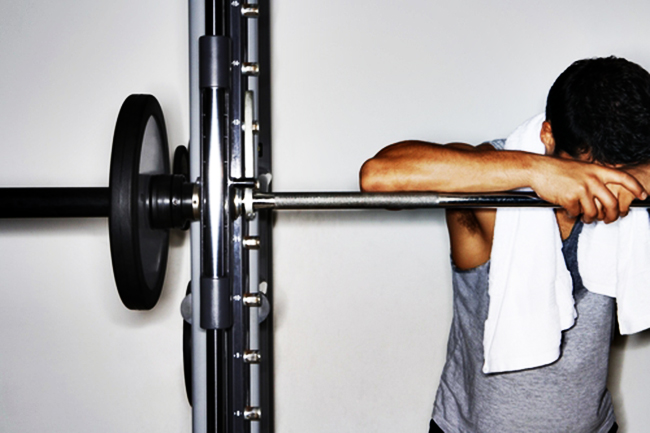To build big muscle, you need to train hard. But here’s the catch — more isn’t always better. Overtraining can completely sabotage your progress. While lifting heavy is essential, recovery is where real growth happens. You don’t build muscle in the gym — you build it while you sleep.
If you’re stuck with slow gains or losing strength, it might not be your workout plan — it could be overtraining.
1. Overtraining Can Lead to Muscle Loss
Going too hard, too often prevents proper muscle recovery. Instead of growing, your body breaks down muscle tissue. According to RxBodybuilders, one major sign of overtraining is muscle mass loss.
What to do: Rest at least 24–48 hours between sessions targeting the same muscle group. Get 30–35g of protein per meal and support your recovery with essential vitamins and electrolytes.
2. Overtraining Lowers Testosterone Levels
Testosterone is critical for muscle growth and overall vitality. But when you overtrain, your body redirects energy to healing instead of hormone production. This may lead to decreased testosterone — your main anabolic hormone. Read more about testosterone’s role in muscle building.
Low testosterone equals low recovery, low energy, and stalled gains. Over time, it may even lead to increased body fat and mental fatigue.
3. Your Immune System Takes a Hit
Each tough workout temporarily suppresses your immune system. With proper rest, it bounces back stronger. But chronic overtraining can leave your body vulnerable to colds, flu, and infections.
Immune health is crucial for recovery. Without it, you’ll be stuck on the sidelines — and lose both water weight and muscle mass during illness.
How to Avoid Overtraining
- Train no more than 5 days a week
- Get 7–9 hours of sleep nightly
- Use a training split with enough recovery time
- Cycle intensity — not every workout should be max effort
- Fuel your body with protein, amino acids, and adaptogens
Pay attention to signs like constant fatigue, poor sleep, low libido, and lack of muscle growth — these can be red flags of overtraining.
Conclusion: Train Hard, Recover Harder
The line between intense training and overtraining is razor thin. If you ignore recovery, your body will break down — physically and hormonally. Respect rest days, support your nutrition, and train smart.

